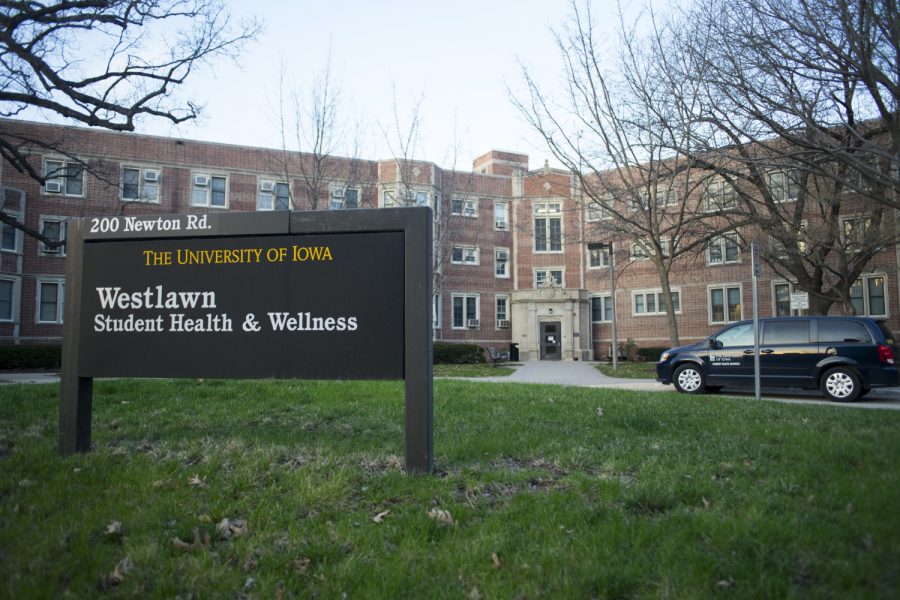Opinion: UI provides many resources to students with eating disorders
Eating disorders affect millions of people, but UI students are able to get the help that they need.
The Westlawn student health and wellness building is seen on Wednesday, Apr. 17, 2019.
September 24, 2019
At least 30 million people in the United States have an eating disorder, and at least one person dies from an eating disorder every 62 minutes, according to the National Association of Anorexia Nervosa and Associated Disorders. With numbers as staggering as these, more needs to be done to raise awareness around eating disorders.
Students seeking help for an eating disorder can go to Student Health, Student Wellness, University of Iowa Counseling Service, and the UI Hospitals and Clinics. There are lots of good resources, the trick is encouraging students who need them to utilize them. They should keep in mind all the health professionals work with eating disorders every single day. There’s no reason to be embarrassed to talk to them.
I interviewed JoAnn Daehler-Miller, a dietitian in University of Iowa Student Wellness, and Kelly Clougher, a psychologist in UI Counseling Service. Both of these women work with students who have a variety of disorders including anorexia, binge-eating, body dysmorphia, and others.
Daehler-Miller and Clougher said there is a negative stigma in society around eating disorders, preventing people who have them from seeking help. We should realize people with eating disorders have distorted views about food and their body. Instead of judging them, we should be empathic.
Clougher said the best way to help someone with an eating disorder is not to talk about food. Daehler-Miller confirmed it by saying never tell someone with anorexia to eat. Just the word “eat” can spark anxiety in some people. Instead, it is much more beneficial showing people who are struggling that they are worth the battle, deserve to get better, and are not alone. This could be done through sending an encouraging text every day or eating meals with the person.
Students and faculty at the UI should be more aware of eating disorders so they will be better prepared to help anyone who has one. Also, it will help them know what resources are available if they themselves start developing one. The earlier one gets treatment, the more likely one recover, Daehler-Miller said.
Daehler-Miller said any professor who teaches about eating disorders should know about all these resources. That way, they will know where to direct students if they ask. The UI should make these resources well-known to all students and faculty.
This can be promoted several ways, such as awarenesses campaigns and more advertising of university resources. Another way to help would be events sponsored by the UI or student organizations. Any sort of action would be helpful and we have to start somewhere.
I want every single student at the UI with an eating disorder to be able to feel comfortable getting the help they need.
Columns reflect the opinions of the authors and are not necessarily those of the Editorial Board, The Daily Iowan, or other organizations in which the author may be involved.


















